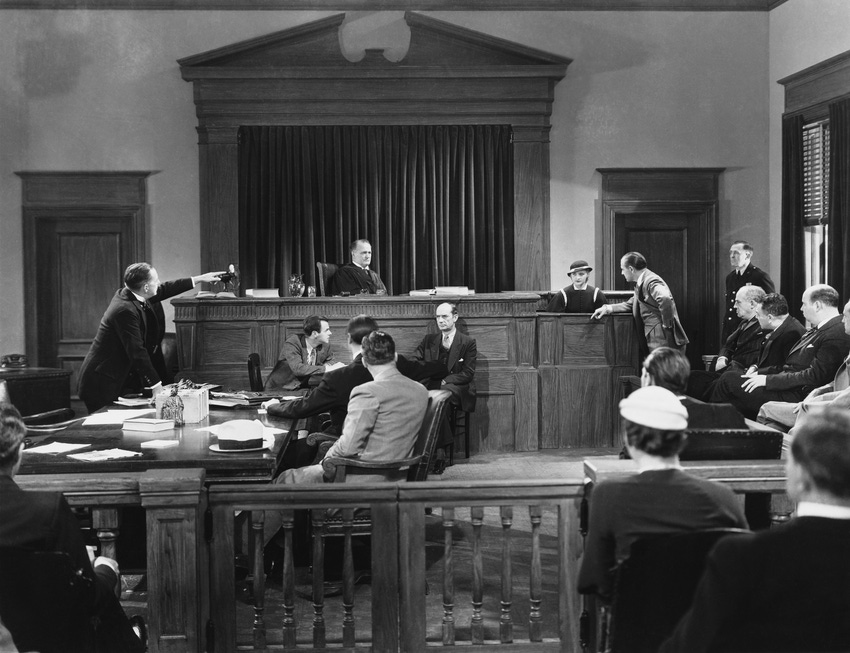Huawei might have filed a lawsuit challenging the royalties, but InterDigital CEO thinks the saga could have a much more damaging and wide-ranging impact on the industry.
January 9, 2019

Huawei has filed a lawsuit challenging the royalties it’s charged, but InterDigital CEO thinks the saga could have a much more damaging and wide-ranging impact on the industry.
Lawsuits in the telco industry are not uncommon, while they are pretty much part of the daily routine for anyone who deals with patents. According to InterDigital CEO Bill Merritt, the dispute is not the problem, it’s the way that Huawei is hoping to get a resolution, heading towards localised judicial systems as opposed to international, and standardised, arbitration.
“Standards have done a great job at breaking down national walls, creating a single playing field, and we think pricing should be the same,” said Merritt.
As it stands, Huawei has filed a lawsuit with the Shenzhen Intermediate People’s Court (January 2) accusing InterDigital of not licensing patents on fair and non-discriminatory terms. The lawsuit follows the expiration of a prior licensing agreement (December 31) with the pair not able to come to an agreement on future terms.
Long story short, Merritt pointed out Huawei wants to pay less for the patents. It’s a simple dispute, based on the success of Huawei smartphones and devices over the last year or so. As Huawei is shipping more units, it feels it should be offered a more competitive rate due to economies of scale. InterDigital however, feels it is offering a fair and reasonable price. The court case will decide royalty payments for the next four years (2019-23).
From Merritt’s perspective, the issue is not the dispute but the lawsuit itself. In the past, with Huawei and other customers, InterDigital has chosen to go down the route of arbitration, an option which Merritt feels is best in this situation as well. In most arbitration cases, each party selects a professional arbitrator, before the pair jointly select a third independent one. The idea is that the trio would assess all the information in the contract, look at market precedent as well as future developments, to decide a competitive and reasonable price for the transaction. It’s (in theory) an independent and neutral way to resolve conflict.
In this case, arbitration was offered as a possible resolution, but Huawei declined, instead electing to head to the regional court. This is where the danger lies; the Shenzhen Intermediate People’s Court is a localised institution which has influence in China. The risk is regionalised rate setting which would cause chaos considering how many jurisdictions there are around the world.
To compound the issue of regionalised rate setting, not only are you likely to have varied approaches and opinions, an international supply chain does not lend itself well to this scenario. The majority of devices and products which are sold today are manufactured in a variety of different countries and regions; the economy has been globalised. Merritt said if you are having to factor in several different regionalised rates for production of devices, the whole supply chain could turn into a disaster.
“The number of disputes could easily be reduced if parties committed to arbitration,” said Merritt.
Unfortunately for Merritt and InterDigital, the two technology powerhouses of the world are increasingly promoting more nationalised agendas and policies which encourage isolationist thinking. It seems we can’t go a day without referring to the trade conflict between the US and China, but the idea of regionalised rate setting, which this lawsuit encourages, is another step away from the international ecosystem, the healthiest option for a profitable and sustainable telecommunications industry.
This is a case which might be worth keeping an eye on over the coming months, it might just lead the patent segment down a worrying and complicated red-tape maze of regionalised price setting.
About the Author(s)
You May Also Like








.png?width=300&auto=webp&quality=80&disable=upscale)


_1.jpg?width=300&auto=webp&quality=80&disable=upscale)


.png?width=800&auto=webp&quality=80&disable=upscale)